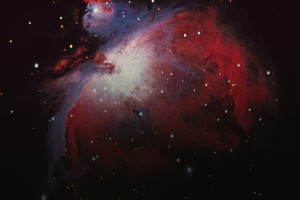
Big bang cosmology, often referred to as the Standard Cosmological Model, demonstrates that everything we see in the universe (all space, time, and matter) had a beginning and came from nothing. If this is true, the first cause of the universe must itself be non-spatial, a-temporal, and immaterial. This description of the uncaused first cause begins to sound a lot like the God of the Bible. But there is another attribute of this uncaused “first cause” that is often overlooked. This cause must also be personal. I first realized this many years ago after reading William Lane Craig and J. P. Moreland’s seminal work, Philosophical Foundations for a Christian Worldview. Craig and Moreland laid out a clear and concise argument for the personal nature of the uncaused “first cause”.
There are two kinds of forces in the universe: personal forces and impersonal forces. Impersonal forces, like the force of gravity, have no choice about how they affect their environment. They enter and their effect is realized immediately. Imagine, for example, a gravity free room in which everything is simply floating in midair. Now introduce the impersonal force of gravity. What happens? Gravity to be felt immediately. The instant gravity enters the room, every object will be drawn to the floor. Impersonal forces cannot decide when to act; if they are present, their effect is felt. This truth has a great impact on the way we understand the first cause of the universe.
If the cause of the universe is an impersonal force, its effect (the appearance of everything from nothing) would be realized the instant the force was present. If that were the case, the first cause of the universe could be no older than the universe itself. The appearance of the cause (the impersonal force) and its effect (the creation of space, time and matter) would be simultaneous events; one would be no older than the other. But if that’s the case, we would once again find ourselves looking for what caused the first cause to appear in the first place! See the problem? The first cause of the universe must itself be uncaused and eternal in order for us to avoid the illogical and endless pursuit of a prior cause. Unless we are willing to accept the irrational premise that the cause of the universe is itself only as old as the universe itself, we are going to have to admit that this cause cannot be an impersonal force. The cause of the universe had the ability to decide to bring the universe into existence, and the ability to decide is an attribute of personhood.
Now let’s review the characteristics of the cause of the universe given the reasonable evidence that confirms Big Bang cosmology:
1. The first cause of the universe must itself be uncaused. If this were not the case, we would be forced to accept an illogical and unreasonable series of causes that regress infinitely.
2. The first cause of the universe must be non-spatial. If this were not the case, we would be forced to accept the illogical and unreasonable premise that space could create itself
3. The first cause of the universe must be a-temporal. If this were not the case, we would be forced to accept the illogical and unreasonable premise that time could create itself
4. The first cause of the universe must be immaterial. If this were not the case, we would be forced to accept the illogical and unreasonable premise that matter could create itself
5. The first cause of the universe must be personal. If this were not the case, we would be forced to accept the illogical and unreasonable premise the cause of the universe is only as old as the universe itself.
6. The first cause of the universe must be incredibly powerful. If this were not the case, we would be forced to accept the illogical and unreasonable premise that all space, time and matter could come into existence without the power necessary to accomplish the task
So the cause of the universe is an uncaused, non-spatial, a-temporal, immaterial personal force of incredible power. What does that sound like to you? A personal god is still the best explanation for the beginning of the universe.

J. Warner Wallace is a Dateline featured Cold-Case Detective, Senior Fellow at the Colson Center for Christian Worldview, Adj. Professor of Christian Apologetics at Talbot School of Theology, Biola University, author of Cold-Case Christianity, God’s Crime Scene, and Forensic Faith, and creator of the Case Makers Academy for kids.
Subscribe to J. Warner’s Daily Email
Save
Save
J. Warner Wallace is a Dateline featured cold-case homicide detective, popular national speaker and best-selling author. He continues to consult on cold-case investigations while serving as a Senior Fellow at the Colson Center for Christian Worldview. He is also an Adj. Professor of Christian Apologetics at Talbot School of Theology, Biola University, and a faculty member at Summit Ministries. He holds a BA in Design (from CSULB), an MA in Architecture (from UCLA), and an MA in Theological Studies (from Gateway Seminary).


































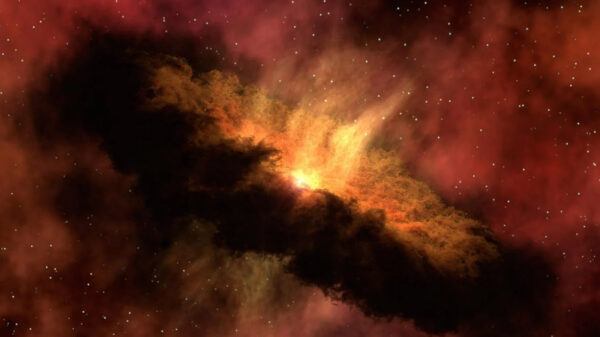
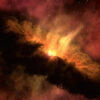
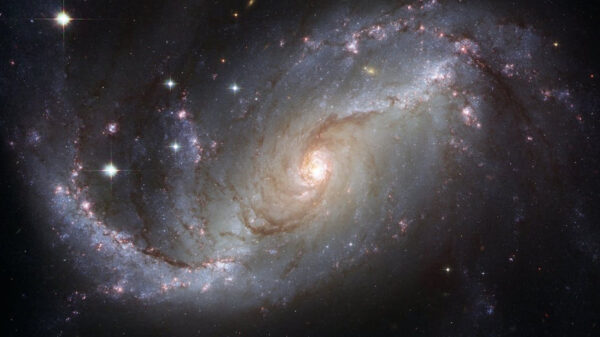
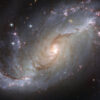

Pingback: Why does the cause of the universe have to be God? « Wintery Knight
Pingback: A Personal God is the Best Explanation for the Beginning of the Universe « Wanda's World
Pingback: SiftingPoint | Bart, Beginning and “Born that Way”
Pingback: How the Principle of Causality Points to the Existence of God | Anchor Apologetics – Best Answers in Christianity
Pingback: A Personal God is the Best Explanation for the Beginning of the Universe | TLG Christian News
Pingback: A Personal God is the Best Explanation for the Beginning of the Universe | A disciple's study
Pingback: Midweek Apologetics Roundup - Hope's Reason
Pingback: Links to begin the week - RobertKrupp.com
Pingback: A Personal God is the Best Explanation for the Beginning of the Universe | Cold Case Christianity – Reformed faith salsa style